DevOps metrics & KPIs help you measure DevOps performance, perform DevOps monitoring and do better software development. Although there are many DevOps KPIs to track, here are the important DevOps metrics that matter. You can regularly monitor them on a DevOps KPI metrics dashboard and share it with your team.
Top DevOps Metrics & KPIs To Monitor Regularly
Here are the key DevOps metrics & KPIs that you must track regularly.
1. Website/Application Response Time
Average Response Time is one of the most important DevOps metrics for every team. If your website or application’s average response time is high, it means there are some bottlenecks that need your attention.
A high response time also results in poor user experience and satisfaction. So monitor average response time for your website/application, throughout the day, to identify when it increases.
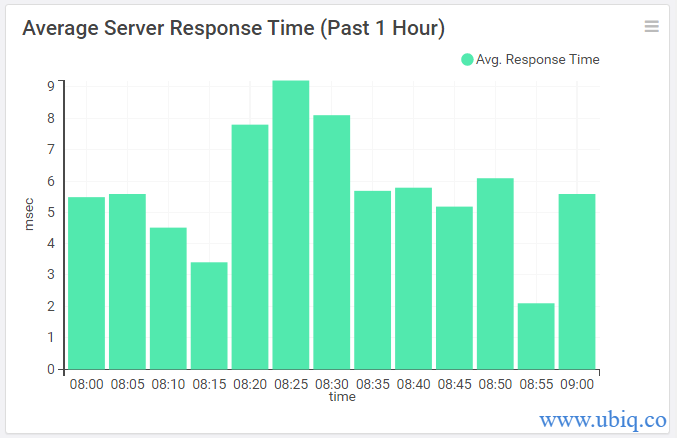
Also monitor the URLs with highest number of requests. There is a good chance some of them might be slowing down your application.
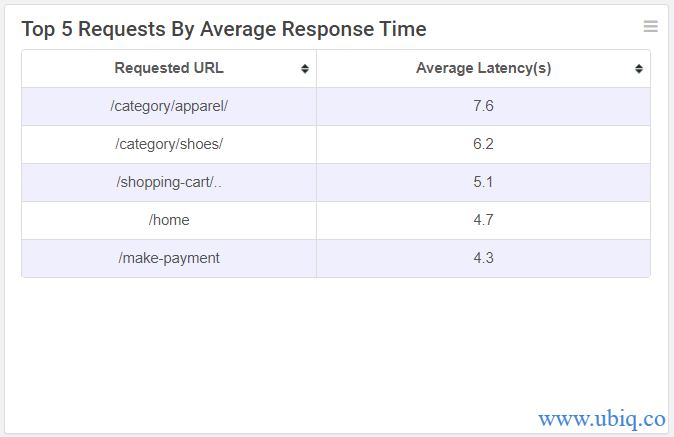
Bonus Read : Top Ecommerce KPIs & Metrics to Track
2. Number of Errors
It is equally important track the errors thrown by your application. If you analyze their type and error code, you can easily identify which parts of your software need fixing.
Every time there is an error, your server is bound to throw an error code. Track the number of errors for 4-5 most common error codes in a line graph.
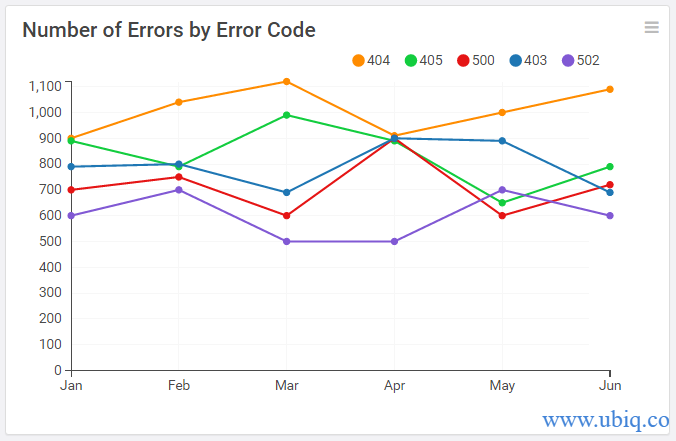
Depending on the error codes, you can take appropriate action. For example, 404 means broken links while 500 means an internal server error. Both are completely fixable.
Bonus Read : Key Website Performance Metrics & KPIs
3. Number of Issues
Issue resolution is one of the most important responsibilities of every DevOps team. Monitor the number of issues over time, broken down by the type of issue as shown below.
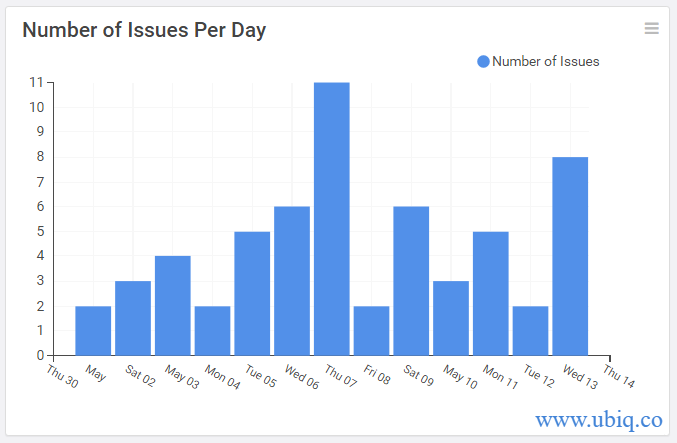
It will help you understand how quickly your DevOps team is able to resolve issues, as well as what kind issues plague your team most of the time.
Bonus Read : Top Call Center KPIs & Metrics to Track Regularly
4. Deployment Time
Deployment Time is one of the most important DevOps metrics. It gives you a good idea about how quickly your team is able to roll out deployments.
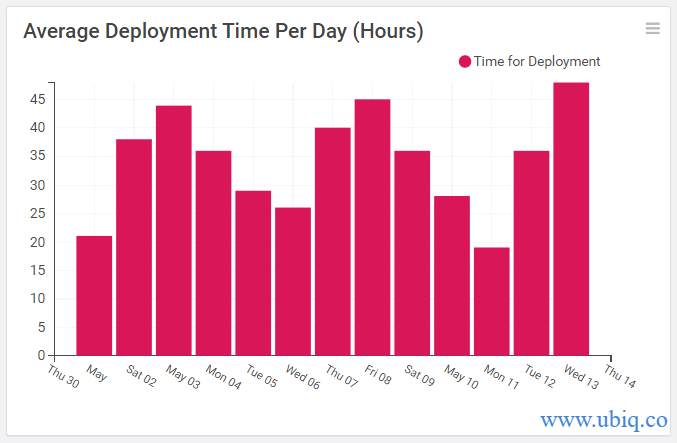
Although low deployment time is good to have, it must not be at the cost of accuracy. So monitor deployment rate alongside number of errors.
Bonus Read : Key Server Performance Metrics & KPIs to Track
5. Deployment Frequency
Deployment Frequency measures the number of deployments per week or day, released by your DevOps team.
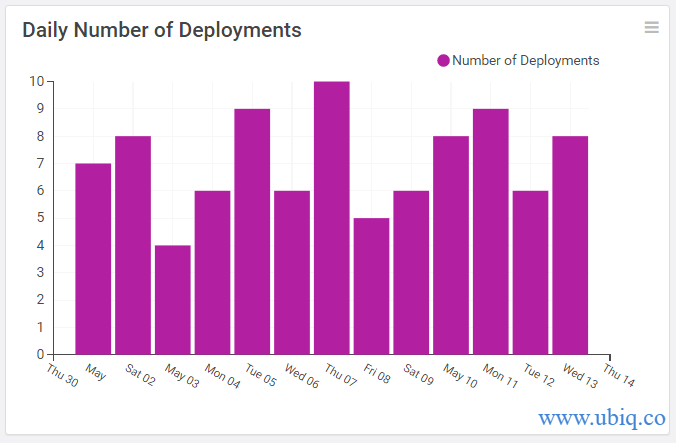
A stable deployment frequency indicates an established workflow. Any dip deployment frequency can mean bottlenecks, while any jump deployment should be investigated. Increase in deployment frequency must not be at the cost of a higher failure rate.
6. Mean Time To Recovery (MTTR)
MTTR is one of the most common DevOps metrics, and indicates your team’s ability to respond to identified issues.
Ideally, MTTR should reduce over time, as your team becomes familiar with problems and is able to resolve issues quickly. Of course, there will be an occasional spike in MTTR due to a new kind of problem, or a major event such as migration to a new cloud server.
You can regularly track average MTTR in a number chart as shown below

Monitor these DevOps metrics & KPIs on a DevOps dashboard using a dashboard software like Ubiq, as shown below and share it with your team.
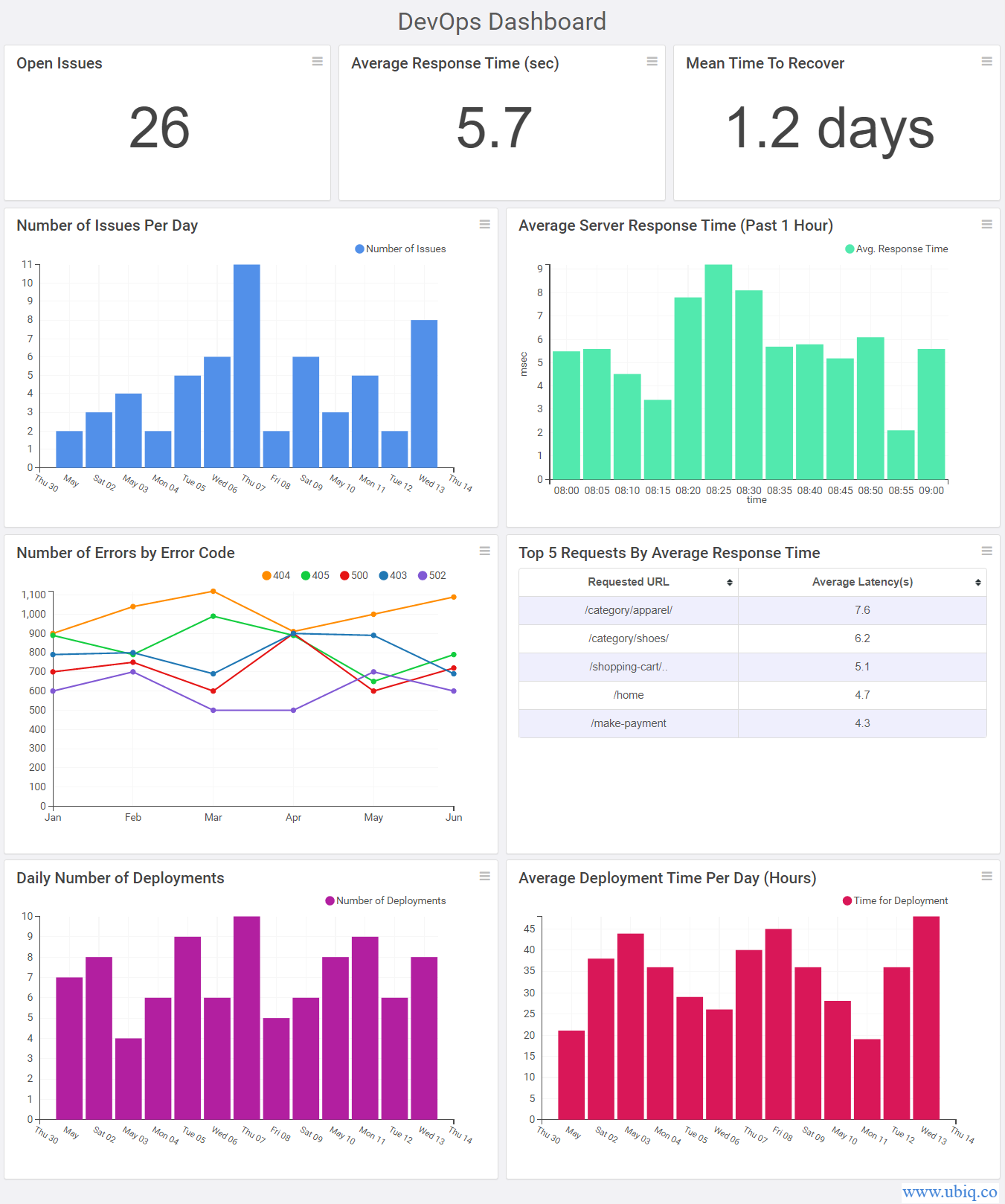
Hopefully, the above-mentioned DevOps metrics and KPI examples will help you improve your application/website performance.
If you want to create DevOps monitoring dashboard, reports & charts, you can try Ubiq. We offer a 14-day free trial!
Sreeram Sreenivasan is the Founder of Ubiq. He has helped many Fortune 500 companies in the areas of BI & software development.